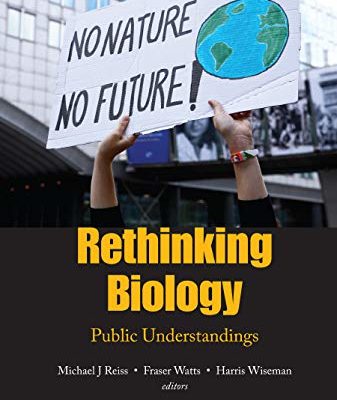In an academic career spanning almost 50 years I have produced a lot of books, but it is always a pleasure when a new one arrives in the post. The latest is edited with my friends and colleagues Michael Reiss and Harris Wiseman, and is on Rethinking Biology, published by World Scientific. It is one of the outputs from a recent project on ‘The New Biology’ which I helped to coordinate, funded by the Templeton World Charity Foundation.
The main battles about reductionism (the idea that complex phenomena can be explained entirely in terms of what is happening at the lowest possible level) are now to be found in biology. However, there is something very strange going on. Many biologists seem in love with the idea that it will be possible to give complete reductionist explanations of complex organisms. Much popularisation of biology gives the impression that that has almost been achieved, and that everything about organisms, including humans, can be explained in terms of genes, neurones etc.
Actually, that is very far from the case. Every serious biologist would recognise, if pressed, that how an organism functions is very dependent on its context. Organisms are adaptive, and their flourishing crucially depends on an interaction between what an organism is made of and the context in which it is operating.
A return to a more contextual approach to biology sits more easily with a spiritual view of life. For one thing, there is an analogy between how the flourishing of an organism depends on its context, and how the flourishing of all God’s creatures depends on the spiritual reality within which they exist.
I wrote the opening chapter myself, followed by chapters on integrative biology (parts, wholes, levels and systems) and systems biology. Then there are chapters on various core areas of biology: genetics and epigenetics, development and evolution, neuroscience, medicine, ecology, and food. Then, lastly, a section on the social context with chapters on religious implications, public understandings of biology, how children understand biology, public use of brain talk, a journalist’s perspective, and an afterword. It is a good read!
